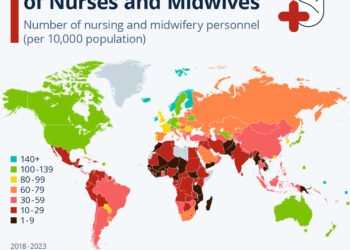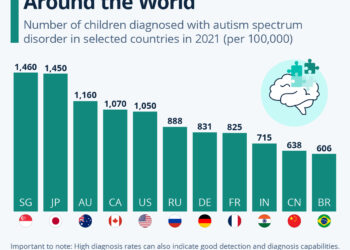Conscious consumerism means consumers today are buying into businesses that use moral compasses and prioritize the well-being of workers, animals, and/or the environment for mere financial profits.
For the last decade or so, there has been a shift in trend in buying from businesses that did not care about the impact their practices had in favor of those that catered to the implications their businesses had on humans, animals, and the environment as a whole. Before we indulge in the importance of conscious consumerism in today’s world, it is necessary to understand the basic concept behind consumer demands that are driven by a commitment to making purchasing decisions with a positive social, economic, and environmental impact.
What Is Conscious Consumerism?
Empathy is the need of the hour. Not just in social interactions but in every practice that eventually affects the ecosystem. Conscious Consumerism is one such necessity that has also become a trend in the past few years. Gen Z is especially inclined towards engaging with brands and businesses that ensure a lesser carbon footprint and practices devoid of animal and human cruelty.
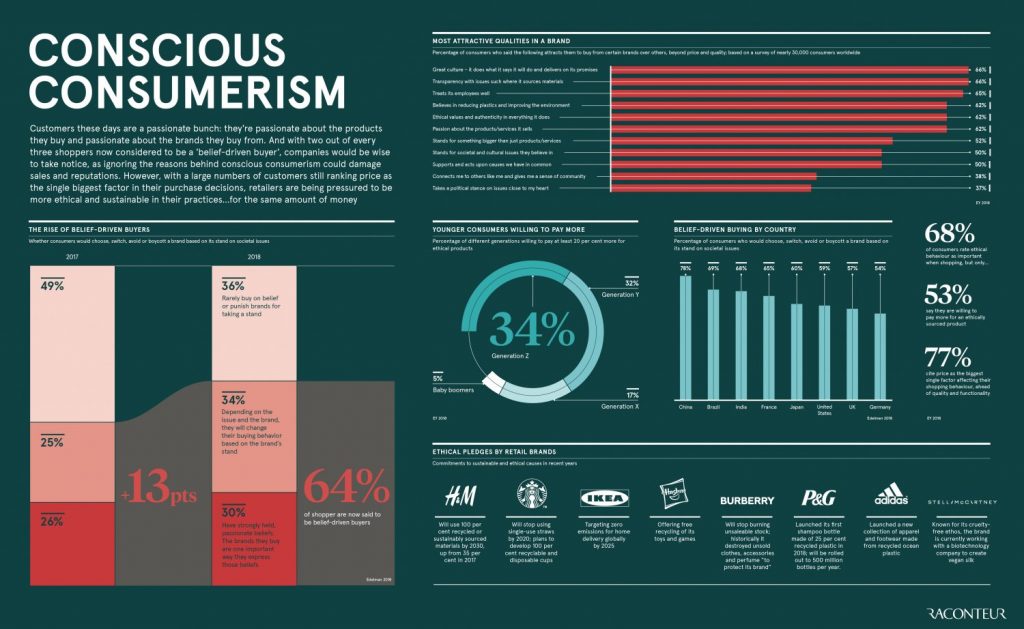
Be it food and clothing or consumer electronics and vehicles, purchasing decisions might be integrated into our everyday life but it should not be blind mindless consumption. One should keep in mind that there’s a whole process involved to take a product from the raw material stage to the state it is displayed in and it has its own consequences. Not to mention what happens to it after it has lived its life or served its purpose.
Whichever cause they’re supporting, conscious consumers tend to overlook a product’s short-term features and “vote with their dollars,” says Ela Veresiu, associate professor of Marketing, Schulich School of Business, York University. Although it’s been at a steady boil for many decades, the years 2020-21 of pandemic lockdown have further accelerated conscious consumerism’s rise to fame. “The pandemic … has really shifted people’s focus to supporting small local businesses over big brands as much as possible,” Veresiu says, “Of course, Amazon sadly excluded.”
10 Ways You Can Be a Conscious Consumer
There are small steps that you can take to be a conscious consumer and play your part in making the world a safer, sustainable, better place:
- Shift to minimalism in your life as much as you can. Decide between necessary and unnecessary buys. When looking for everyday utilities, consider how they are manufactured and their impact.
- Choose companies that put the planet’s ecosystem and humanity’s betterment first. Brands are now putting in efforts to redefine business as a means for good.
- Choose fair trade coffee, fashion, handicrafts, fruit etc.
- Go for earth friendly products that are made using natural ingredients and materials, e.g. a composting tooth brush. And these might as well be for your family and froends, too! Pick the perfect environmentally friendly gifts for your dear ones.
- Invest in cruelty-free, plastic-free toiletries and cosmetics.
- Bike when you can! Limit air travel, get around by using mass transit, rideshares, public trains and transport, and if you can get one, drive electric an vehicle.
- Practice zero-waste.
- Eliminate single-use plastics from your routine life and get reusable utensils like cups, plates, containers etc.
- Reuse items, buy second-hand products when you can, go to flea markets, lend and borrow within friends and family, shop from online marketplaces and fix broken goods rather than discarding them for new items.
- Recycle paper and plastic, dispose of old clothes properly and consider composting at your homes.
A Brief History of Conscious Consumerism
“Individual participation in the economy is a form of pure democracy”, James Buchanan, economist, in his article Individual Choice in Voting and the Market.
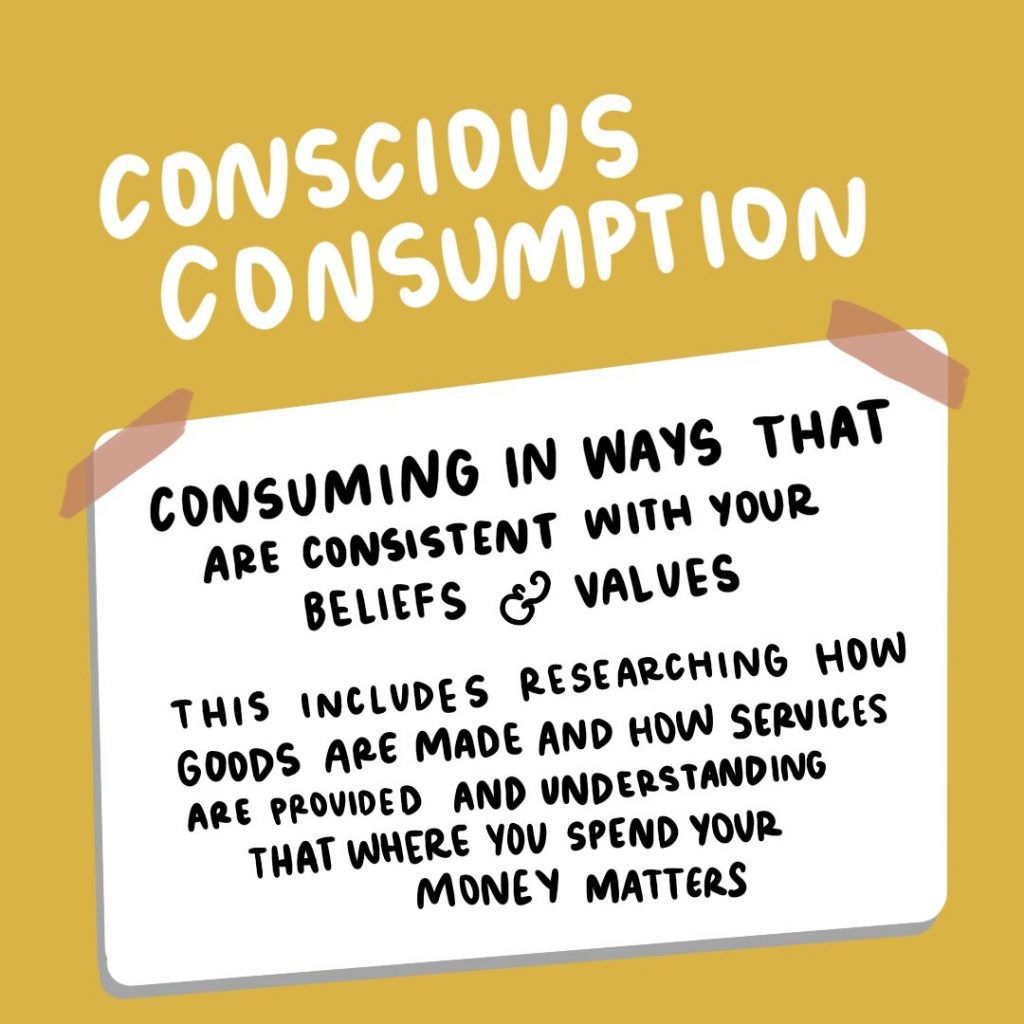
The “conscious consumer” concept is said to date back to 1970 but “dollar voting” can be traced as far back as to 1954. It should come as no surprise that formal consumer moments that actively advocated for consumer rights came into being in the late 19th to early 20th century in the Industrialization nations like UK and USA.
These movements came into being to fight against unfair labor practices, promote product safety, push for healthy competition in the market, and ensure financial regulation.
Why Does Conscious Cosumerism Matter?
Let’s take your trips to the grocery stores that promote ethical sourcing of products as an example. When a conscious consumer peruses the aisles of seemingly endless organic food, drinks, or home products, do they also take into consideration the impact a particular product has? While for many of them, the focus lies first on cost.
But they are also left wondering at times about the source of the products, the origin of organic produce and the techniques used in procuring it by supply chains, the overall consequences of the final item list, even.
Conscious consumerism will severely aid humankind is inching closer to achieving the sustainability goals it desperately needs. With the dooming climate crisis growing steadily day by day, conscious consumerism is one of the greatest ways to curb the effects of human waste and pollution.
It caters to the need for mass consumption and production, which has become one of the main nuisances behind the degradation of the Earth’s ecosystem.
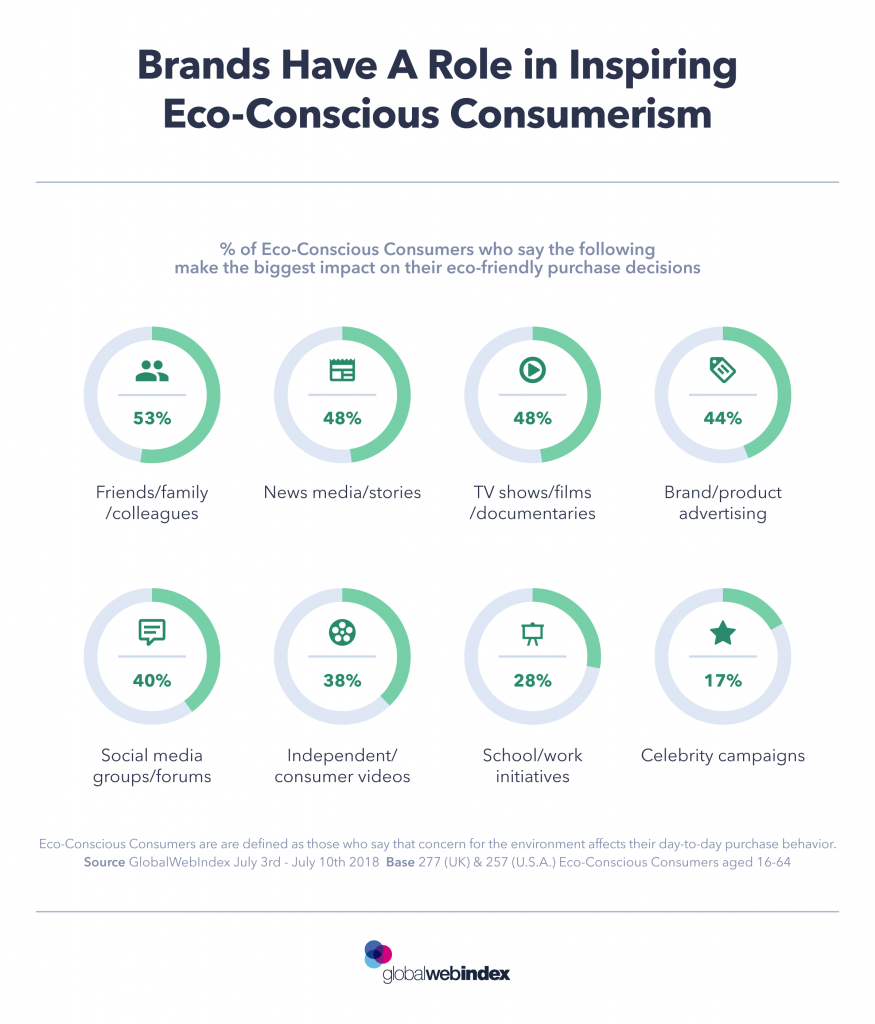
From an ethical perspective, some of the most deplorable actions revolve around human labor and the ghastly treatment of animals. The fashion industry, for example, and fast fashion particularly, is undergoing massive scrutiny for their repeated atrocious animal abuse, as uncovered by various documentaries on social media and electronic media.
It is the need of the hour for businesses and brands to review their practices and devise better business models while putting an effort into selling sustainable products that minimize cruelty and promote a better ecosystem.
What Are Brands To Do?
Recyclable packaging has become a norm and a business necessity in recent times. So what do the brands need to do in order to keep their customers engaged? Social Media trends and projects work well in promoting products when they are infused within the campaigns. It has become the decisive line between highlighting a product or resulting in a consumer boycott just because the brand doesn’t support that cause/movement.
The younger generations in particular expect brands to understand the game better, and desire trendy products that let them stay validated while supporting a worthy cause. The brands should, then, be extremely conscious of the worst-case scenario today, that is, to get labeled and perceived by the customer or a mass group of potential consumers as against their cause of choice. That is not a road one would want to go down on!
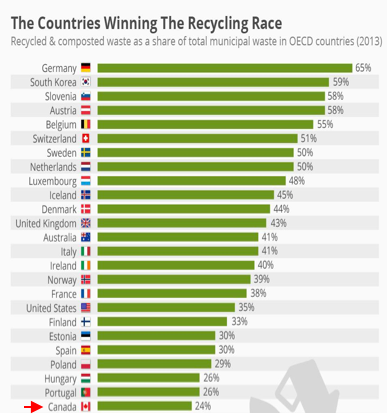
Ethical consumption is always socially responsible behavior. And people tend to welcome social values only when they are within the reach. With the given economy especially, it has to get easier and more affordable for a person to be a conscious consumer in order to make ethical consumption a more realistic option. This is the only way the gap between wanting to be a conscious consumer and actually being a conscious consumer will shrink.
Are you in favor of opting for clean energy and sustainable products? What are your thoughts on going green, for good? Are you for or against conscious consumerism? Let us know in the comments below.


